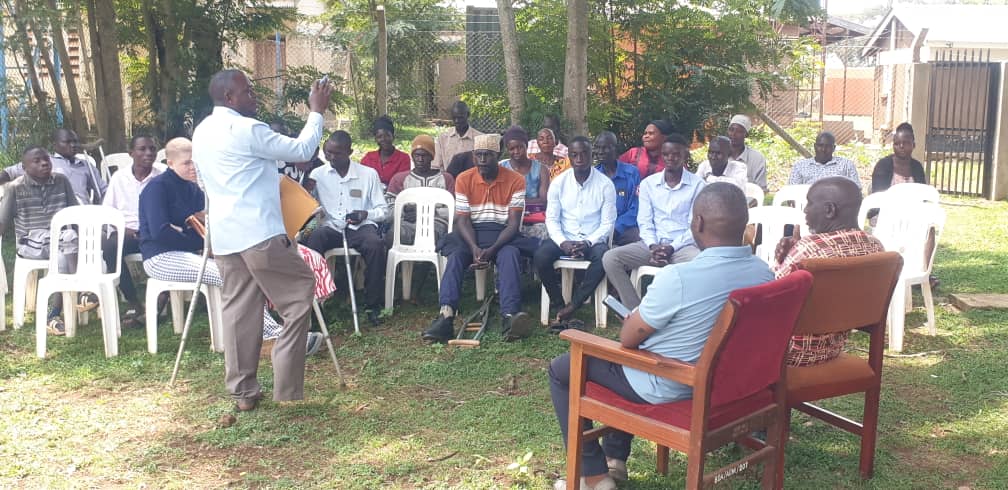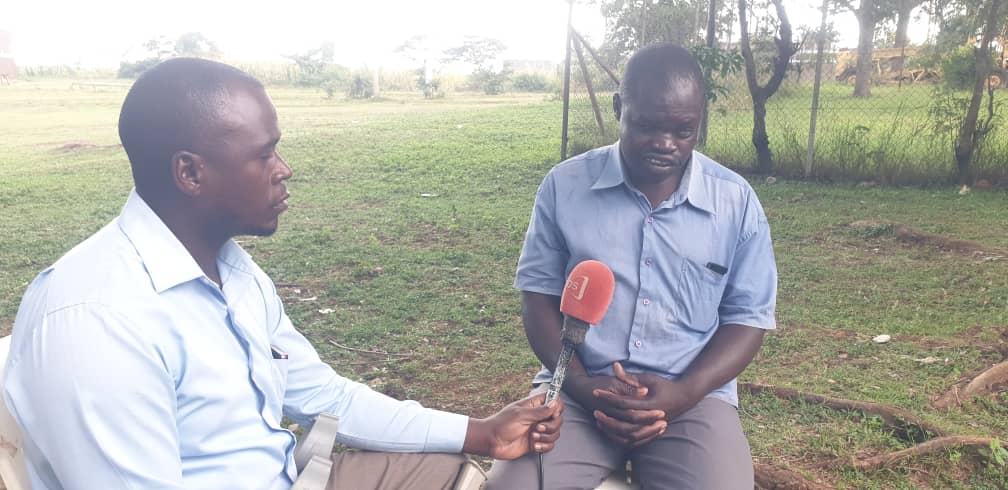PWDs in Bugiri Demand End to Discrimination and Improved Access to Public Services

Persons with Disabilities (PWDs) in Bugiri District are voicing growing frustration over persistent discrimination and limited access to essential public services.
Despite existing government policies aimed at promoting inclusivity, many PWDs say they continue to face systemic barriers that prevent them from fully participating in society.
From being passed over for employment opportunities to enduring humiliating experiences at health facilities, the disabled community in Bugiri is demanding accountability and concrete action from both local and national authorities.
Among those affected is 29-year-old Faruku Mwase, a visually impaired resident of Kiringero B Village in Kapyang Subcounty.
A graduate of Makerere University with a Bachelor’s degree in Education, majoring in Literature and English, Mwase completed his studies in 2023 but remains unemployed.
He says his first brush with discrimination came during his school practice—a mandatory component for student teachers—when he was denied a placement due to his visual impairment.
“My troubles began during my school practice,” Mwase recalls. “I was denied a placement simply because I’m blind. That’s when I realized discrimination starts even before graduation.”
He says he has since applied for several teaching positions, including the recent nationwide recruitment of nearly 2,000 teachers for government seed schools, but received no response.
“I strongly believe my disability was the reason,” he says.
Uganda’s public service guidelines stipulate that at least five percent of all recruits should be persons with disabilities, but Mwase argues that this quota is rarely enforced in practice.
“Government policies sound nice on paper, but they are rarely implemented,” he says.
“I had a calling to teach, and now I can't serve or support my family. I'm a father of five, but with no income, life has become unbearably hard.”

Mwase’s story is far from unique. Women with disabilities, particularly expectant mothers, also face significant challenges when seeking maternal health services.
Several have reported being treated with insensitivity and even cruelty by health workers. One woman, who preferred to remain anonymous, recounted a distressing experience at a local health facility.
“When I went into labor, I was forced to climb a high delivery bed without assistance. I couldn’t do it. One nurse mocked me, saying: ‘If you could manage a bed at home to get pregnant, why can’t you climb this one?’” she said.
Such degrading remarks and lack of support have discouraged many women with disabilities from seeking medical help during pregnancy, putting both their lives and the lives of their unborn children at risk.
In response to these troubling realities, Straight Talk Foundation has launched a five-year initiative titled “Sexual Reproductive Health Rights for All” (SRHR4ALL), aimed at empowering youths, women, and persons with disabilities in Bugiri and neighboring Iganga District.
The project, also implemented in Ethiopia and Malawi, focuses on enhancing the capacity of marginalized groups through gender-transformative approaches and advocacy for sexual and reproductive health rights (SRHR).
“Sexual Reproductive Health and Rights for All is a regional project that seeks to build and enhance the capacity of women, girls, adolescents, young people, and persons with disabilities,” said Luke Twesigye, the SRHR4ALL Project Coordinator at Straight Talk Foundation.
“We conduct a range of activities including community dialogues, policy discussions, school-based sexuality education, and media advocacy to challenge harmful stereotypes and reduce gender inequalities.”
Twesigye explained that the project also focuses on community-level engagement. Activities include dialogues with adolescents on gender transformative approaches, sessions with parents on children's rights and positive parenting, and advocacy to improve access to SRHR information through radio talk shows, X (formerly Twitter) Spaces, and school clubs.
Local leaders and cultural institutions have expressed strong support for the initiative. Naayi Kawere, the Kattukiro (Prime Minister) of Bukhooli Chiefdom, welcomed the project as a timely intervention.
“PWDs have been ignored for too long. It’s time society acknowledges their rights and potential,” he said, promising to speak to the Bugiri District Service Commission to ensure that PWDs are considered during recruitment processes.
Twaha Mpandi, a PWDs leader in Nankoma Subcounty, emphasized the urgency of the situation.
“We need to sensitize service providers and the community at large. PWDs are not asking for favors—they are demanding equal rights,” he said.
“We also call upon our Member of Parliament, who doubles as Minister for PWDs, Hon. Hellen Asamo, to come to our rescue. We have no jobs, and expectant women with different abilities are struggling to access health services.”
As the SRHR4ALL project gains traction in Bugiri, there is growing pressure on the government and stakeholders to enforce existing laws, improve infrastructure, and allocate targeted support for PWDs.
The cries from Bugiri are more than a call for sympathy—they are a demand for dignity, justice, and inclusion.
“Disability is not inability,” says Mwase. “We want to contribute to our communities like everyone else. All we need is a fair chance.”



0 Comments